This morning, after reading a MRI report and films of Mr. Alberto in the consultation office of Fuda Cancer Hospital in Centuria Medical Makati building in Manila, I told him delightedly, "Your prostate cancer has disappeared."
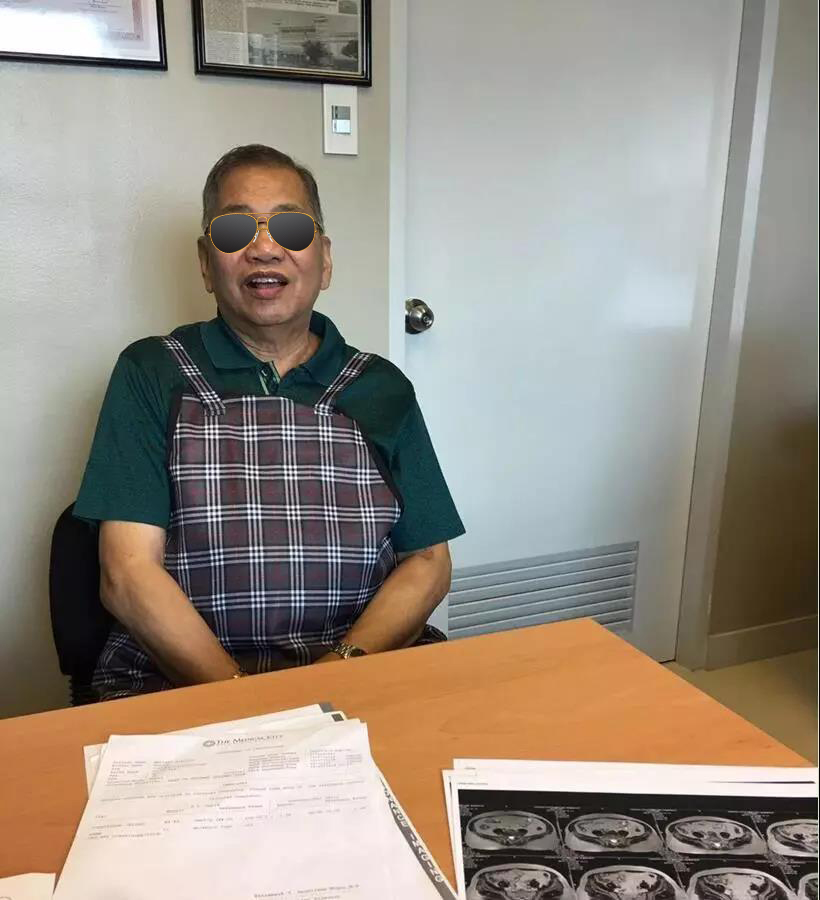
In August 2018, Mr. Alberto, 71years old, who lives in Manila, Philippines, developed urinary urgency, frequent urination, and nocturia. At a local hospital, his blood test result showed PSA 11.55ng/ml and MRI report showed a prostate tumor. In October 2018, he went to a large local hospital for a prostate biopsy which showed extensive malignant tumors in the left, right and posterior parts of prostate.
In June 2018, Alberto developed cerebral infarction and he was suffering from diabetes and hypertension for more than 15 years so he had not decided whether to undergo surgical resection or not. On November 12, 2018, he came to the office and found me(Dr. Mu Feng). I told him that for localized prostate cancer patients, especially the elder, those who have chronic diseases, and those who are unwilling to undergo surgery, they could choose a minimally invasive way--cryosurgical ablation.

This method was first introduced by American doctors for prostate cancer treatment and approved by FDA in the US. In 2003, Professor Katz AE and Rewcastle JC reported the summary of the clinical experience of cryosurgical ablation for prostate cancer in the medical journal Current Oncology Reports (2003 5(3) pp. 231–238) is the current and potential role of cryosurgical ablation as a primary therapy for localized prostate cancer. Conclusion: compared with those who underwent surgery, radiotherapy, brachytherapy and endocrinotherapy, prostate cancer patients who underwent cryosurgical ablation can survive more than 5 years without tumor progression. In the past ten years, Fuda Cancer Hospital has treated more than 400 prostate cancer patients with cryosurgical ablation, who suffered from less pain and then gained quick recovery. After listening to my explanation, Mr. Alberto made up his mind to go to Guangzhou Fuda Cancer Hospital for treatment. After the assistance of Mr. Segundu Cruz III, manager of the Manila office, he quickly applied for a visa to China and arrived in Guangzhou on November 30, 2018.
On November 30, 2018, Alberto was admitted to Guangzhou Fuda Cancer Hospital. On December 5, 2018, after examination and discussion by experts, Alberto smoothly underwent cryosurgical ablation and iodine-125 implantation for prostate cancer. On December 14, Alberto was discharged gladly.
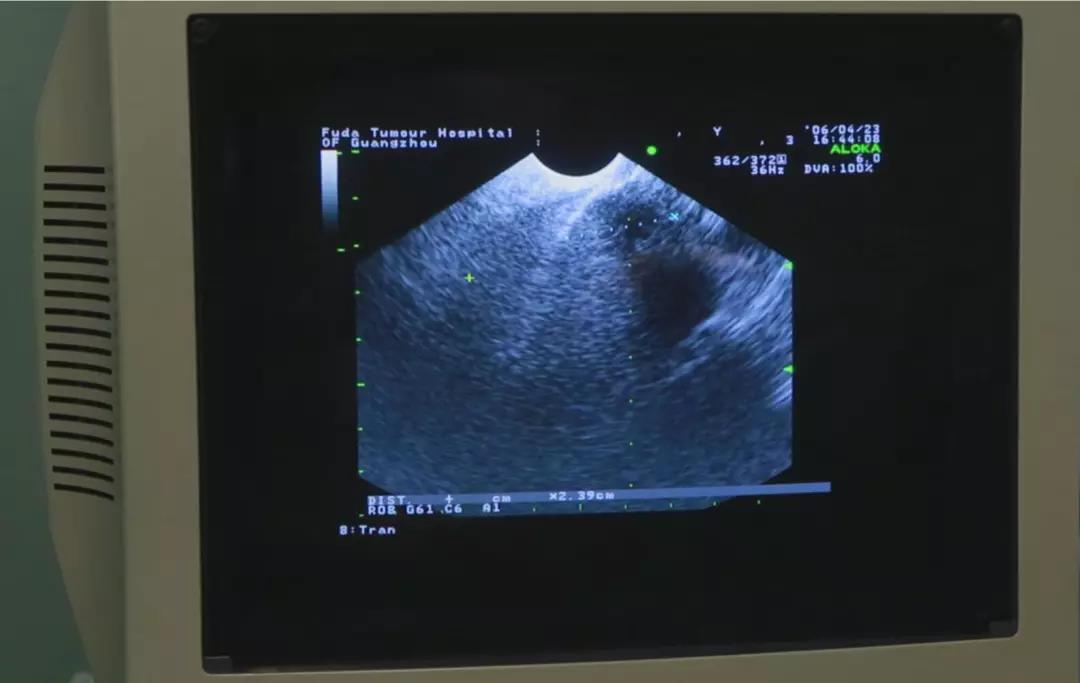
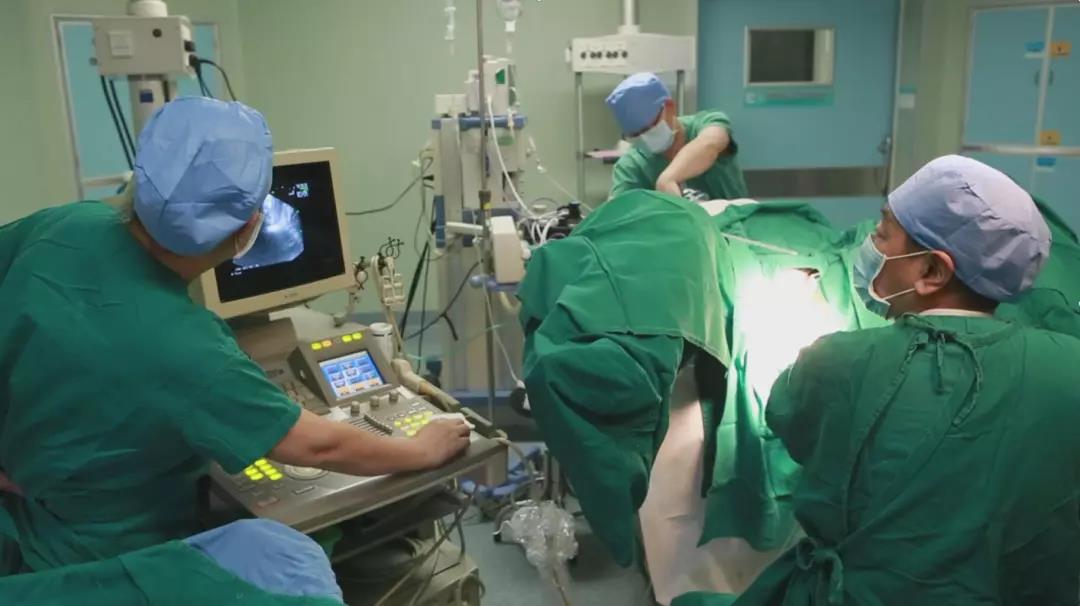
In February 2019, when I provided free oncology consultation in the Manila office, Mr. Alberto came with the MRI results done by UERM MRI Center in Manila on February 11. I was really happy about the findings because the report wrote, “Prostate gland: Normal in size 2.5x3.2x3.1cm (AP/T/CC) with a volume of 12.5cm3 (previously 31cm3). The previously noted lesion involving the left anterior transitional zone and left anterior stroma was no longer seen.” PSA 0.25ng/ml
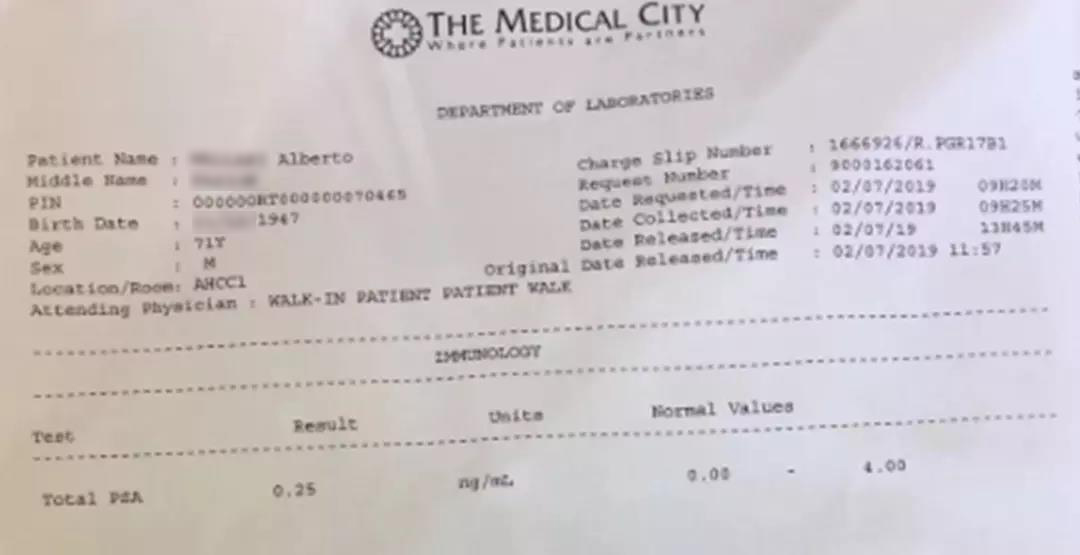
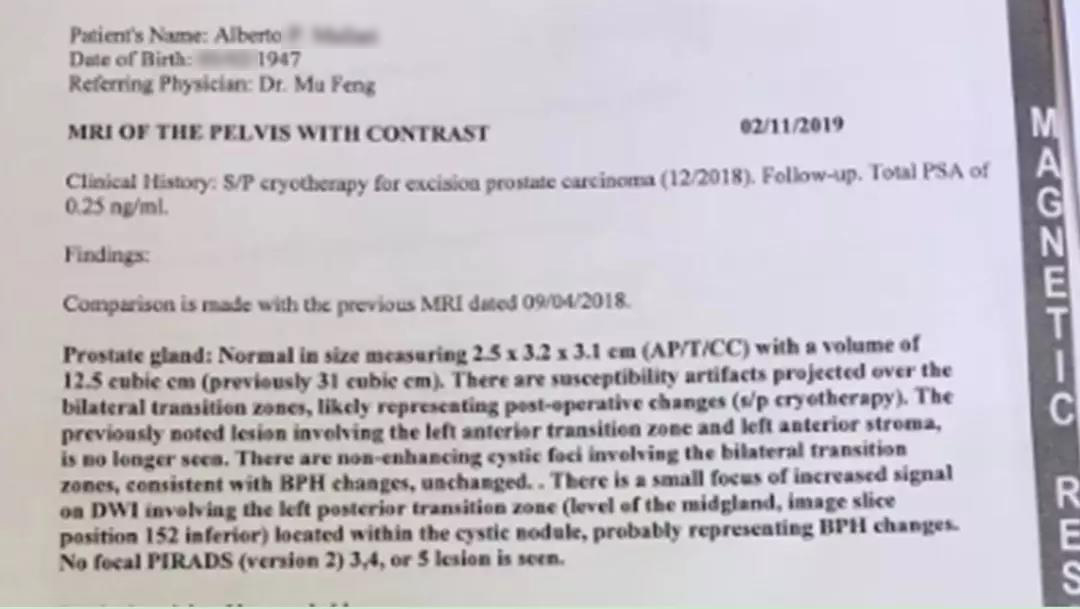
"Your prostate cancer has disappeared!" I told him excitedly. He smiled happily and said thankfully that he had found a right doctor and was "healed" eventually.
